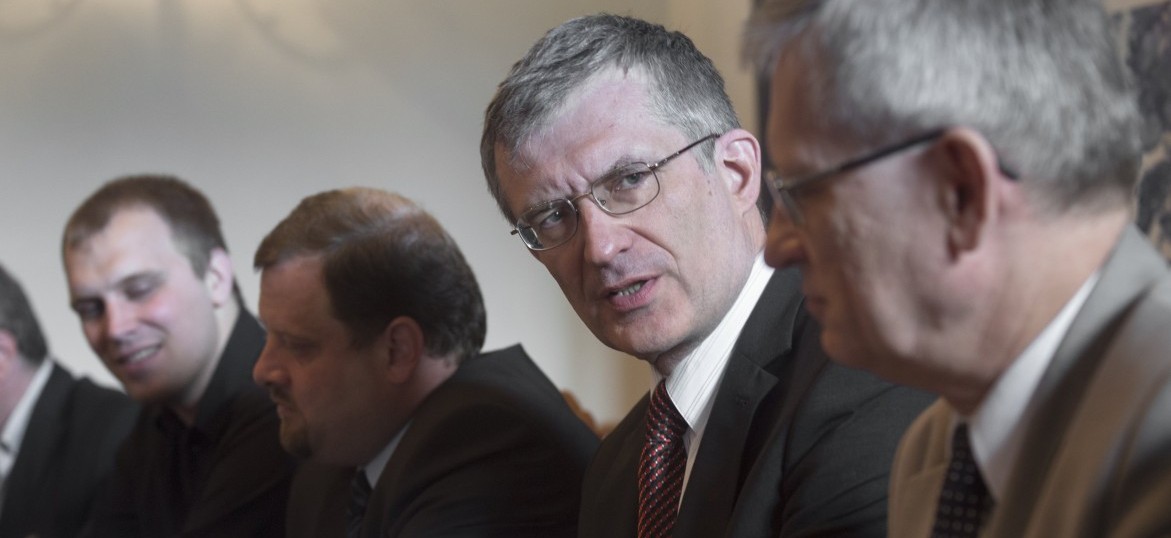
What is the human dimension of the Visegrad cooperation? became the main topic of the 12. Visegrad Summer School Ambassadors’ panel debate conducted by Krzysztof Bobiński.
The question is not that easy. As pointed out by Zbigniew Krużyński, the national coordinator of Visegrad cooperation in the Polish Ministry of Foreign Affairs, it’s very difficult to make sharp distinctions. “Even when you discuss the energy security, transport or infrastructure you have to keep in mind its social dimension”- underlined Iván Gyurcsik, Ambassador of Hungary to Poland. But there is also a more narrow sense of human dimension of the political cooperation in the Central and Eastern Europe. The most visible example is the Visegrad bicycle race organised by the Polish Presidency in the V4 recently. Indeed, it’s a creative and attractive way to promote close relations between the societies. “Political integration is not possible without the integration of the people” – Petr Maryška, the Second Secretary of the Mission of the Czech Republic to Poland concluded. Peter Kormúth, Deputy Head of the Mission of the Slovak Republic to Poland highlighted the role of the International Visegrad Fund as a strong supporter of the civil societies’ cooperation in the Central and Eastern Europe. A good example of such a cooperation is the Visegrad Summer School. He also insisted on starting a debate on the meaning of the Central Europe. He argued that the popular phrase of “return to Europe” should be reformulated as “return to the Central Europe” to face our common challenges together. Apparently, it cannot be achieved without some bottom-up initiatives in the region.
After the statements the floor was given to the Visegrad Summer School participants. Several interesting questions were raised. For instance, Irakli Samkharadze from Georgia asked about the possible expansion of the Visegrad Group. All countries’ representatives agreed that they want to keep the structure open for cooperation and consultations with external partners. Nevertheless, for the time being it seems that any enlargement of the Group isn’t seen as a possible scenario. This inspired a question of Jaroslav Paznocht, a Czech participant who’s wondering what the Visegrad Group actually is? Is it limited to some diplomatic meetings or does it really have any potential? Zbigniew Krużyński pointed out to the fact that the Visegrad Group is “focused on cooperation not formulas” and there are many levels on which it is conducted. Besides the human dimension and the high profile intergovernmental meetings there are also experts’ consultations, a close parliamentary cooperation or finally - joint initiatives in the European Union, such as the common advocacy for the cohesion policy during the recent Multiannual Financial Framework negotiations.
Ziemowit Jóźwik












